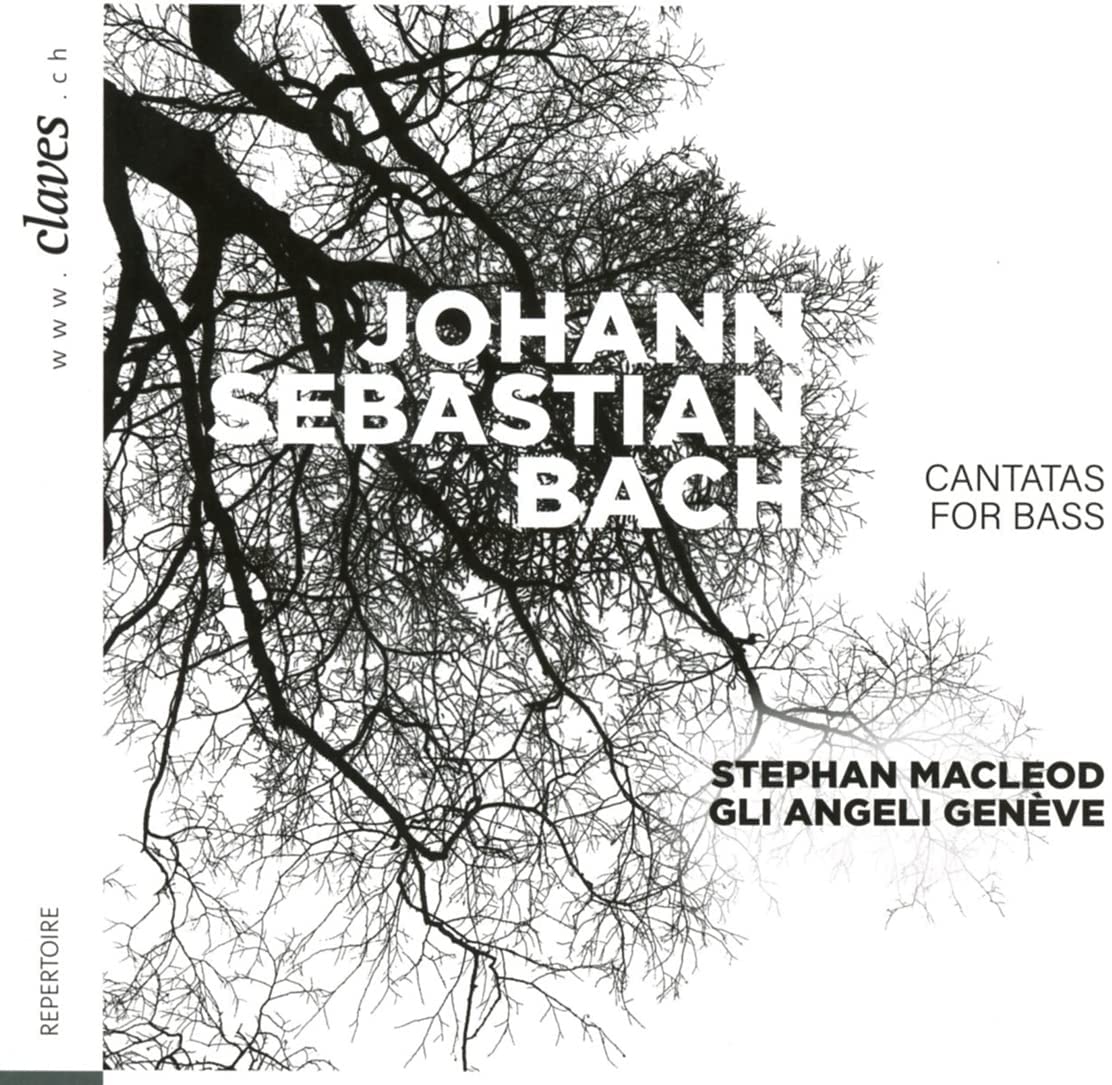Stephan Macleod, Gli Angeli Genève
64:32
Claves CD 50-3049
This is a beautifully crafted CD. After many years of singing for others, Stephan Macleod, the Swiss bass-baritone, has put together his own group of singers and players under the name of Gli Angeli Genève, and they perform splendidly under his direction.
Last year they released a B Minor Mass, which I have yet to hear in detail, but in these cantatas for bass solo the absolute unanimity of style with clarity, agility and attention to the words and the meaning of what he is singing together with a thoroughly informed approach to the HIP background in terms of instrumental textures and balance is outstanding. He uses a string band of 3.3.2.2.1 with dual accompaniment, using the cembalo alone in many of the arias to thin the texture, and a double SATB group of singers.
Macleod has a mellifluous voice, but is capable of real bass edge when required in the grittier recitatives, where I like his well-crafted change of tone between the andante arioso passages that quote the chorales and the fluid recitative proper. He sings the plainer, earliest version of BWV 82, that eschews the later oboe da caccia doubling in the third movement, but the balance with the oboe is first rate here. I have only two slight question marks. First, in BWV 56, where in the third movement the tortuous journey through this world gives way to a glimpse of heaven in a wonderful aria with a tuneful obbligato oboe; here I felt the balance in this trio was miscalculated: the oboe was too far in the background and the voice slightly overpowering as a result. And in the highly problematic BWV 158, where there are traces of a possible earlier version (the original wrapper gives the Presentation as well as the second day after Easter for the performance date), the virtuoso obbligato part in 158ii is marked violin, but the lowest string is never used and a low c# is avoided in passagework that clearly expects it. This makes it look very much as if this part in its surviving form was conceived for a traverso, and having tried several options, I favour the traverso rather than the violin, which sounds unnaturally high for the obbligato in this performance.
But these tiny quibbles are the only thing I can find to question in what is otherwise an exemplary recording, featuring musicians who deserve every success in their work together.
David Stancliffe
